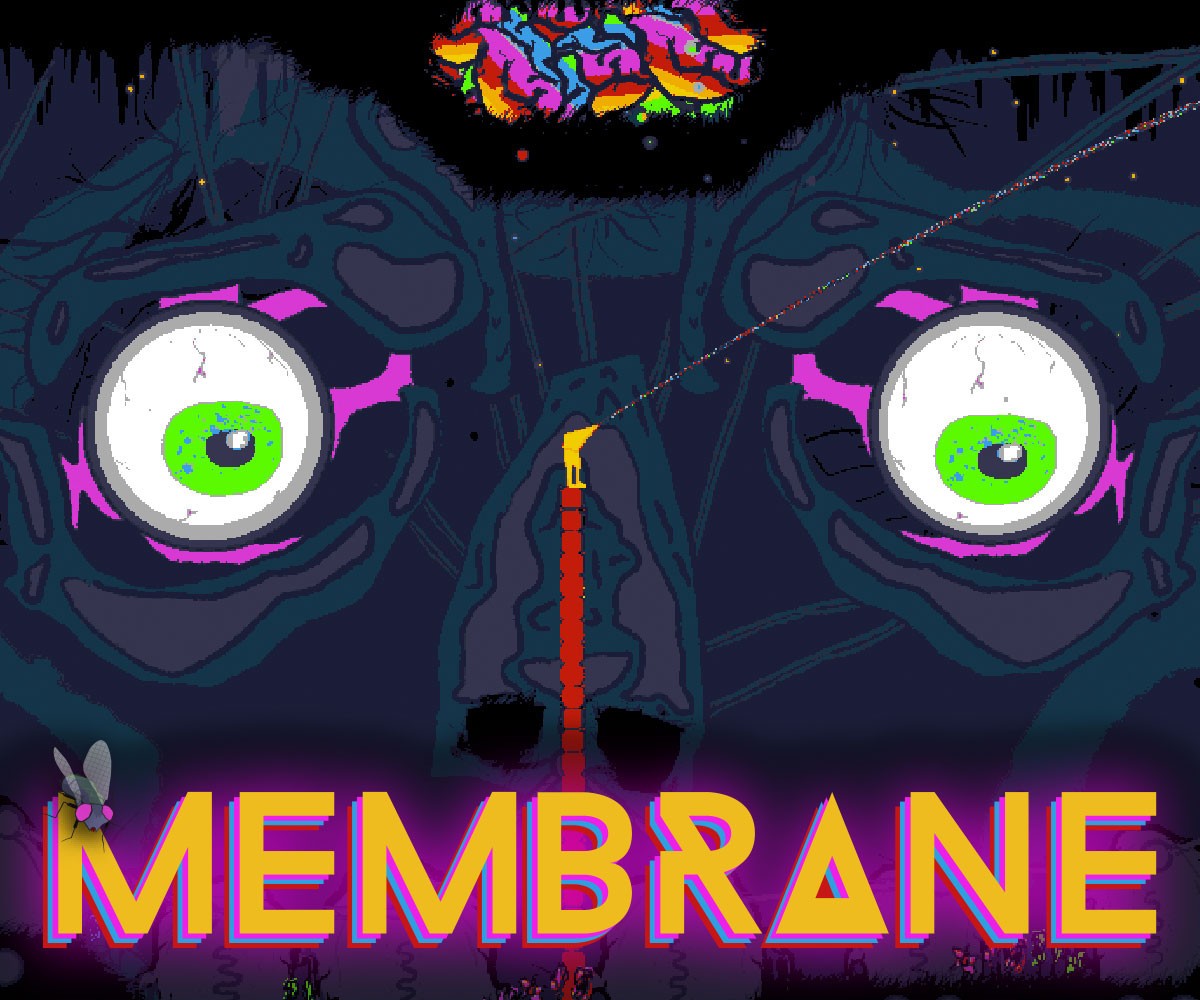Every day millions of thoughts race across our minds. We constantly receive information through stimuli that helps dictate our actions and reactions. The sound of ticking in a quiet office registers in our brains, asking us if we’d like to respond. Will I take this mug and throw it at Bryan from accountings head if he doesn’t stop clicking his fucking pen? Will I then have to deal with a lengthy HR investigation where I’ll try to defend my position, but ultimately be deemed a “hostile employee” when he shows up to the deposition wearing a neck brace like the scum he is and I “assault” him by jumping across the table to show he’s faking it? Jury’s still out, but when your mind does make a decision, it sends the signal through your neurons, and that thought is what you play as in Membrane, a physics puzzle game with platforming elements about inevitably swatting a fly.
It’s a short, trippy experience that aesthetically resembles a low-budget [adult swim] show, mixed with an LSD high, featuring vibrant music as you journey from the Brain to the Hand. With six stops along the way, your little neuron will face around forty-five puzzles to enact insect assassination. The point of the puzzles is to get your neuron through a room, with the ability to collect two yellow orbs, to link the thought across the body. To solve the puzzle, your neuron can shoot little, red squares to form rough structures that help you navigate the terrain, or he can shoot little, yellow triangles that destroy those structures. The other major components are a green ball that’s sometimes used to breakdown similarly colored walls blocking your path, a rotating red cube, a pink liquid that will kill you on impact, and a positive/negative battery port that when connected opens a gate or activates a platform.
It’s reminiscent of New Ground’s early days, a novel concept with a rougher execution. Membrane has the novelty nailed on the head with an idea that’s refreshingly original considering a lot of puzzle games tend to just be rehashings with a new theme. Oh look, now we can play Tetris with anime girls, or mahjong with anime girls, or chess with anime girls, or solitaire with anime girls, or any other game that weebs want their imaginary girlfriends on.
Puzzle games face a balancing act, because you want a model that actively prods the user’s imagination without making it unfair, but if you make the solutions too easy, interest wains fast. Membrane’s shorter length helps offset the second part, but because it’s a physics based puzzle game, some immediately obvious solutions become cumbersome tasks as structures slip, slide, and fall all over the place. The reward of a puzzle is that you’ve found the solution, and that satisfaction doesn’t come from the execution but from knowing the answer. So, when you know the answer to the problem, but all the floors are slippery, and your structure keeps toppling over at the slightest movement, you get annoyed. Creating those structures can also be a hindrance since aiming isn’t as precise as it should be. While fine for the majority, I think if you kept the joystick for general or fast aiming, but allowed the player to make precision adjustments with the d-pad it would have been a better option.
Overall, Membrane is a nice little brain teaser if you have a few hours to kill as you enter the delirium that is the human body or want a more polished version of flash games you found on coolmathgames.com, but the wonky physics and rough shooting mechanics hinder its enjoyment. Osmosis Jones: Puzzle Adventure fires a brain signal to narrowly swat by.
